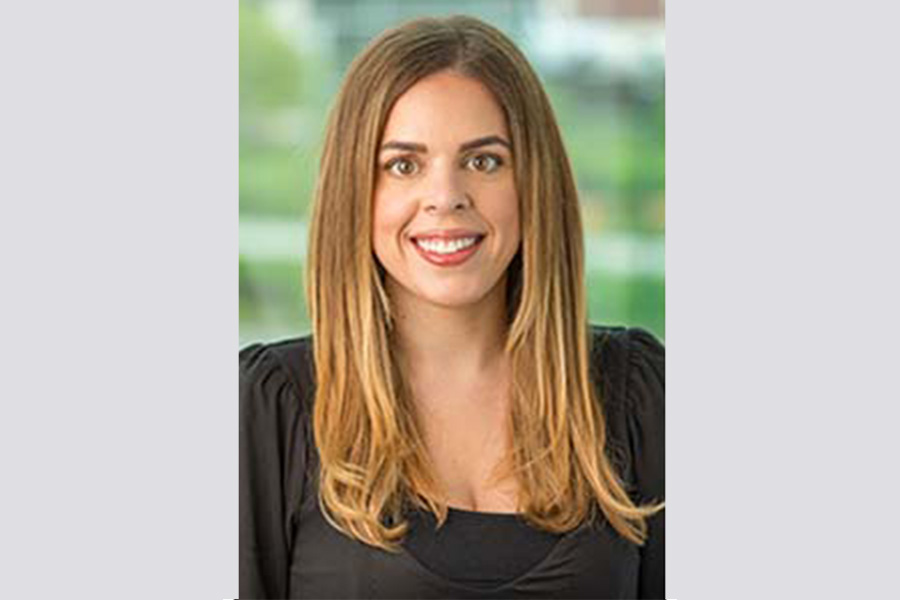Didactics
We put our residents beside passionate industry leaders and on the forefront of challenging clinical scenarios early and often.
Residents are encouraged to customize their training experience with elective rotations and clinical research.
UNMC's primary clinical partner, Nebraska Medicine, is Nebraska’s top hospital, as reported by multiple agencies, offering ample access to challenging cases from a wide variety of patients.
Each week, Tuesday afternoons are reserved for CA1 didactics, Wednesday afternoons for CBYs, and Thursday afternoons for CA2s and CA3s. Residents find this consistent format allows for immediate application of learned materials. Content presentation varies between lessons led by faculty experts who are educators at heart, and resident-led lessons that allow young physicians to shine.
Additionally, we hold “boot camps,” or more frequent didactics that cover intensive topics, at relevant times throughout training. Residents are encouraged to attend department-wide learning opportunities such as the weekly grand rounds meeting, monthly journal clubs, quality assurance meetings, and morbidity and mortality meetings.
American Board of Anesthesiology board examination preparation begins the moment a resident starts at UNMC, as five faculty are board examiners for the ABA. CBYs are exposed to introductory anesthesiology topics amidst their broad training. Our didactic curriculum is separated into Basic Exam (CA1) and Advanced Exam (CA2/3) coverage.
Preparation for the Applied Exam begins immediately in the CA1 year. Practice sessions for the Standardized Oral Exam occur monthly and in small groups with immediate feedback. Practice for the Objective Structured Clinical Examination occurs throughout residency during simulation sessions. Each resident is provided a full-length mock Applied Exam in the Clinical Skills Lab during their CA3 year with the opportunity to return after graduation for additional practice. Sessions are recorded so faculty may provide valuable feedback to each resident.
Learning Opportunities
Simulation
Our simulation curriculum is robust and developed and led by our faculty. All residents receive small-group sessions specific to their learning level multiple times yearly. Simulation facilities include the IEXCEL Program at the state-of-the-art Global Davis Center, the Clinical Simulation Lab, and the department’s high-definition simulator, task trainers, and echocardiography simulator.
Simulation techniques include recreating realistic environments through virtual and augmented reality, holographic and visualization techniques, task trainers and more. In addition, our residents participate in skills labs led by faculty experts throughout residency to practice and augment skills specifically related to anesthesia training.
Research
UNMC places a strong emphasis on research and scholarly activity.
In typical years, department faculty scholarly activity accounts for more than 40 publications in peer-reviewed journals and more than 100 contributions to national and international conferences. Residents typically contribute more than 20 posters at national conferences. Residents pursuing research will find support at the institutional level through the Clinical Trials Office and the College of Public Health, and through the following department assets:
- Basic science researchers
- Multiple clinical researchers
- Translational researcher
- Research Nurses
- Statistician
- Resident Research Oversight Committee
Health Educators & Academic Leaders Track
The Health Educators & Academic Leaders curriculum provides a foundation in best teaching practices, educational scholarship and academic leadership to health professionals in training.
The curriculum is designed to allow health professional trainees and students the opportunity to develop essential skills as educators before transitioning into their careers.
Learn more about the Health Educator and Academic Leaders Track.
CRANE Scholar Program
The six-month research elective is an American Board of Anesthesiology-approved option for anesthesia residents in academic departments who:
- Are interested/invested in research.
- Have a promising track record of preliminary research success.
- Are performing clinically at a level that reassures residency program leaders that the individuals can forego six months of clinical training and still be ready for their boards and future practice.
Applicants are required to write a formal proposal for how they intend to use their six months of research time and how this will impact their future careers.
Residents will submit their proposals to the Research Committee for final approval. The application includes requirements for a rigorous research plan, a robust mentoring structure, and plans for further funding and career development activities. This process will also ensure funding for their research project. Residents are expected to present to the department's grand rounds at the end of their CA-3 year on what they accomplished with their research elective time.
